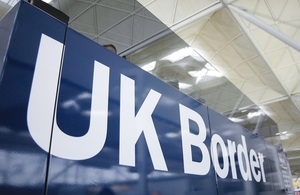Second Permanent Secretary appointed at BEIS
News story
Clive Maxwell has been appointed second Permanent Secretary at the Department for Business, Energy and Industrial Strategy.

Clive Maxwell
The Permanent Secretary at the Department for Business, Energy and Industrial Strategy (BEIS) has today (18 October 2022) announced, with the approval of the Prime Minister, that Clive Maxwell has been appointed as the new second Permanent Secretary at BEIS. Clive is currently Director General, High Speed Rail, at the Department for Transport.
The second permanent secretary will provide leadership across the whole breadth of the department’s delivery portfolio, ensuring the department has the expertise and experience to deliver across a wide range of programmes, from energy support this winter to longer term investments.
The Secretary of State, Jacob Rees-Mogg, said:
Clive brings a wealth of experience to the new position of second permanent secretary at the department. BEIS has much to deliver for consumers and businesses, from vital support for energy bills to securing essential economic growth, and Clive will ensure this work is delivered successfully.
Permanent Secretary, Sarah Munby, said:
Clive is a fantastic addition to the team and will help ensure we’re successful in delivering one of the most challenging and diverse portfolios in government. His recent experience leading one of the government’s very largest delivery programmes, HS2, will be invaluable and I look forward to working with him and welcoming him to the team.
Clive Maxwell said:
I’m delighted and excited to be joining BEIS, and playing a part in its vital work supporting economic growth and reform of energy markets. I’m looking forward to using my experience to help the Department with one of the biggest delivery portfolios in government.
Clive has been Director General, High Speed Rail at the Department of Transport, since 2017.
He has held Senior Civil Service roles across numerous departments since 2000, including:
- Director General, Energy Transformation, DECC / BEIS (2014-2017)
- Chief Executive, Office for Fair Trading (2012-2014)
Clive will start in post in November.
Published 18 October 2022

